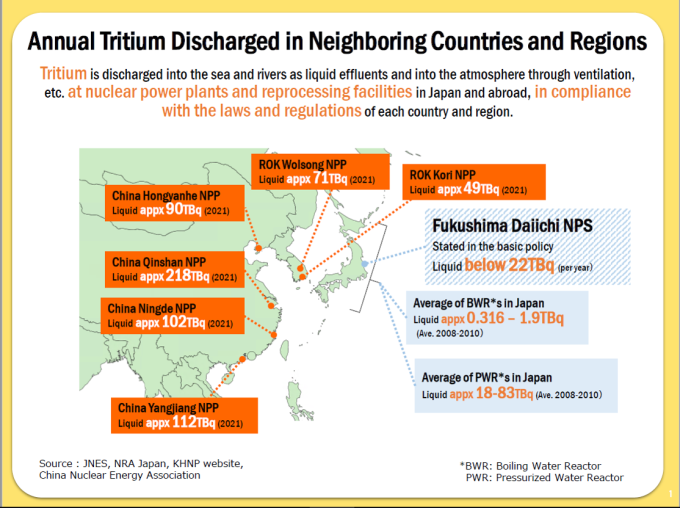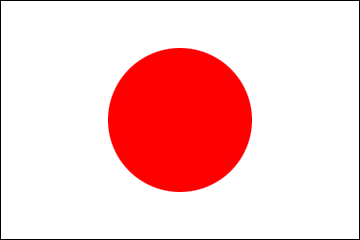ALPS treated water: Japan continues transparency for providing data-based safety assurance
2023/9/19

I would like to express my sincere gratitude for the kind support and friendship that has been extended to me by the people of Palau over the last nine months since I assumed my position as the Ambassador of Japan to Palau.
It has been a true privilege and honor for me to serve in this important country, which has more than 200 years of history with Japan. In fact, 25% of the Palauan people have Japanese ancestry, and more than 1,000 Japanese words have been adopted into the Palauan language. This is an illustration of the close ties between our countries.
I reaffirm, through my daily work as the Ambassador, that our relationship is “tokubetsu” and “exceptional” based on a special partnership that has been nurtured by the governments, organizations, companies, and individuals based on a foundation of respect and trust. As an example, in the last week of August alone, we welcomed more than 150 Japanese people to Palau: the Japan-Palau Parliamentary Friendship League; the LDP Youth Leaders Group; the Japan War-Bereaved Families Association; the Fishery Agency; the Japan Coast Guard; and the Okinawa Prefectural Government. They received a warm welcome as always, and thoroughly enjoyed their time exchanging and learning. I am consistently grateful to the Government and people of Palau for their support.
I was, therefore, startled to read the statement entitled "The Pacific is not a nuclear waste dumping ground!” issued by the Pacific Elders’ Voice (PEV) without any scientific data.
I, as the Ambassador of Japan, would like to take the opportunity to provide, once again, necessary information regarding the handling of treated water.
On August 24th, 2023, Japan started discharging treated water from the Fukushima Daiichi Nuclear Power Station into the sea. The water stored at the power station has been treated enough through what we call the “Advanced Liquid Processing System,” ALPS for short. ALPS allows the removal of almost all radioactivity to the level far below the safety standards, and the only radioactive material that remains, known as ‘tritium,’ is an isotope of hydrogen that exists in nature and can be found in rain, sea, and tap water.
Many nuclear power plants and other facilities in other countries also discharge tritium through liquid waste into rivers and the sea in compliance with their own domestic laws and regulations. In fact, after the water is treated through ALPS, and further diluted to ensure that the concentration of tritium will be 1/40 of the regulatory and safety standard and 1/7 of the WHO drinking water standard. The amount of tritium in ALPS treated water is much smaller than that of tritium discharged from many other nuclear power plants and facilities in other countries.
On July 4th, the International Atomic Energy Agency (IAEA), the world’s authority on nuclear-related issues including safety, published its Comprehensive Report, summarizing the outcome of the review missions from an objective and professional standpoint based on scientific evidence. In the report, the IAEA has concluded that (i) the approach to the discharge of ALPS treated water into the sea and associated activities are consistent with relevant international safety standards, and (ii) the radiological impact on humans and the environment is negligible. The report also states that additional review and monitoring by the IAEA will continue after the discharge starts.
Japan has committed to explain the discharge plan to the international community, including the Pacific Island countries, at multinational conferences and bilateral meetings.
As a result, leaders of Palau, the U.S., Australia, and NZ officially welcomed the IAEA’s Comprehensive Report. Also, many have expressed their support and appreciation for the meticulous and evidence-based methodology that Japan chose to use in the discharge of ALPS treated water into the sea.
Japan will continue to take all possible measures to ensure the safety of discharge and will never discharge in a manner that would adversely affect human health or the environment.
Since the discharge started, the results of monitoring by the Government of Japan and Tokyo Electric Power Company (TEPCO) have been made public in a timely manner both domestically and internationally. The Government of Japan and TEPCO will continue to make every effort to ensure a safe discharge, with the continued involvement of the IAEA, including its reviews.
Meanwhile, I note with disappointment that the statement from the PEV described Japan’s efforts as a “brazen act of environmental vandalism.” The discharge, being part of the decommissioning process of the Fukushima Power Plant, has been carefully planned, conducted, and assessed by the IAEA. I request the PEV to re-assess its stance and to consider the data made available to all globally. I also urge the PEV to see this matter in the interest of our long-standing friendship and in the interest of understanding and respect, particularly towards those in Japan who are recovering from the destructive 2011 earthquake and tsunami, as well as other countries engaging in renewable energy to address climate change.
I understand the fear associated with nuclear issues, particularly for those of us in the Pacific. I respect that the people of Palau voted to adopt the first constitution with an anti-nuclear clause in the world. But please be assured ALPS treated water is not the one and the monitoring results after the discharge have demonstrated the water is safe.
Thus, I call for the PEV to engage in discussions with Japan and our scientists for better understanding of Japan’s safety measures regarding the handling of ALPS treated water. After all, Japan is an archipelagic country surrounded by the sea.
I will sincerely continue to provide scientific evidence that reassures us the safety of the discharge. In this matter, the tireless support of the Government and the people of Palau to Japan is greatly appreciated.
Ambassador of Japan to Palau, ORIKASA Hiroyuki
